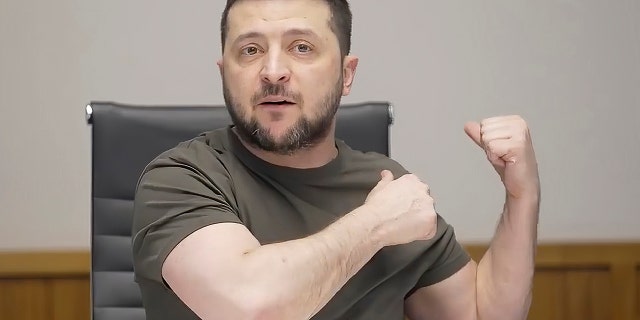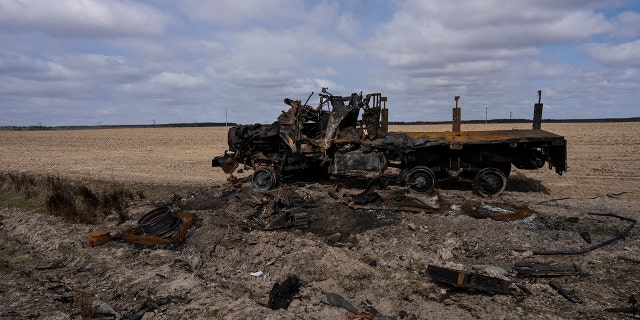NEWYou can now listen to Fox News articles!
Ukraine President Volodymyr Zelenskyy continued to call on the world to do more to help his country fend off Russian aggressors, going as far as to accuse the West of cowardice during an address on Sunday, while a top Ukrainian official identified a shift in Russian strategies.
Kyrylo Budanov, the head of Ukrainian military intelligence, predicted that Russia was aiming to split Ukraine into Western and Eastern blocs, similar to how North and South Korea were independently recognized following the Korean War, as ongoing negotiations with Russia have so far failed to reach a conclusion.
RUSSIA PLANS TO SPLIT UP UKRAINE; KREMLIN CENSORS ZELENSKYY PEACE PLAN: LIVE UPDATES
“The occupiers will try to pull the occupied territories into a single quasi-state structure and pit it against independent Ukraine,” Budanov said in a statement via the Defense Ministry. The official said Ukraine would continue to fight to defend the regions.
Emergency workers search for bodies under the debris of the regional administration building, heavily damaged after a Russian attack earlier this month in Kharkiv, Ukraine, Sunday, March 27, 2022. (AP Photo/Felipe Dana)
The occupied territories include Donetsk and Luhansk, two cities Russian officials have demanded Kyiv hand over amid the negotiation process.
EXPLOSIONS ROCK LVIV IN WESTERN UKRAINE, AMID SPECULATION RUSSIA IS CHANGING STRATEGY
In the Sunday address, Zelenskyy called for additional fighter jets and tanks to push back Russian advances, as the latter country has pivoted its focus to taking over the Donbas region in Eastern Ukraine.

In this image from video provided by the Ukrainian Presidential Press Office, Ukrainian President Volodymyr Zelenskyy speaks during an interview with independent Russian news media from Kyiv, Ukraine, Sunday, March 27, 2022. (Ukrainian Presidential Press Office via AP)
“I’ve talked to the defenders of Mariupol today. I’m in constant contact with them. Their determination, heroism and firmness are astonishing,” Zelenskyy said in the address. “If only those who have been thinking for 31 days on how to hand over dozens of jets and tanks had 1% of their courage.”
Zelenskyy also provided some details surrounding the ongoing negotiation process, telling Russian reporters that Ukraine would declare neutrality and offer security guarantees to Russia.

A Russian military vehicle destroyed during combats against Ukrainian army is seen in a corn field in Sytnyaky, on the outskirts of Kyiv, Ukraine, Sunday, March 27, 2022. (AP Photo/Rodrigo Abd)
CLICK HERE TO GET THE FOX NEWS APP
These guarantees included keeping Ukraine nuclear-free and remaining out of NATO, should Ukrainian voters pass a referendum agreeing to do so.
Russian media outlets reportedly banned the interview from being published.
The Associated Press contributed to this report.

